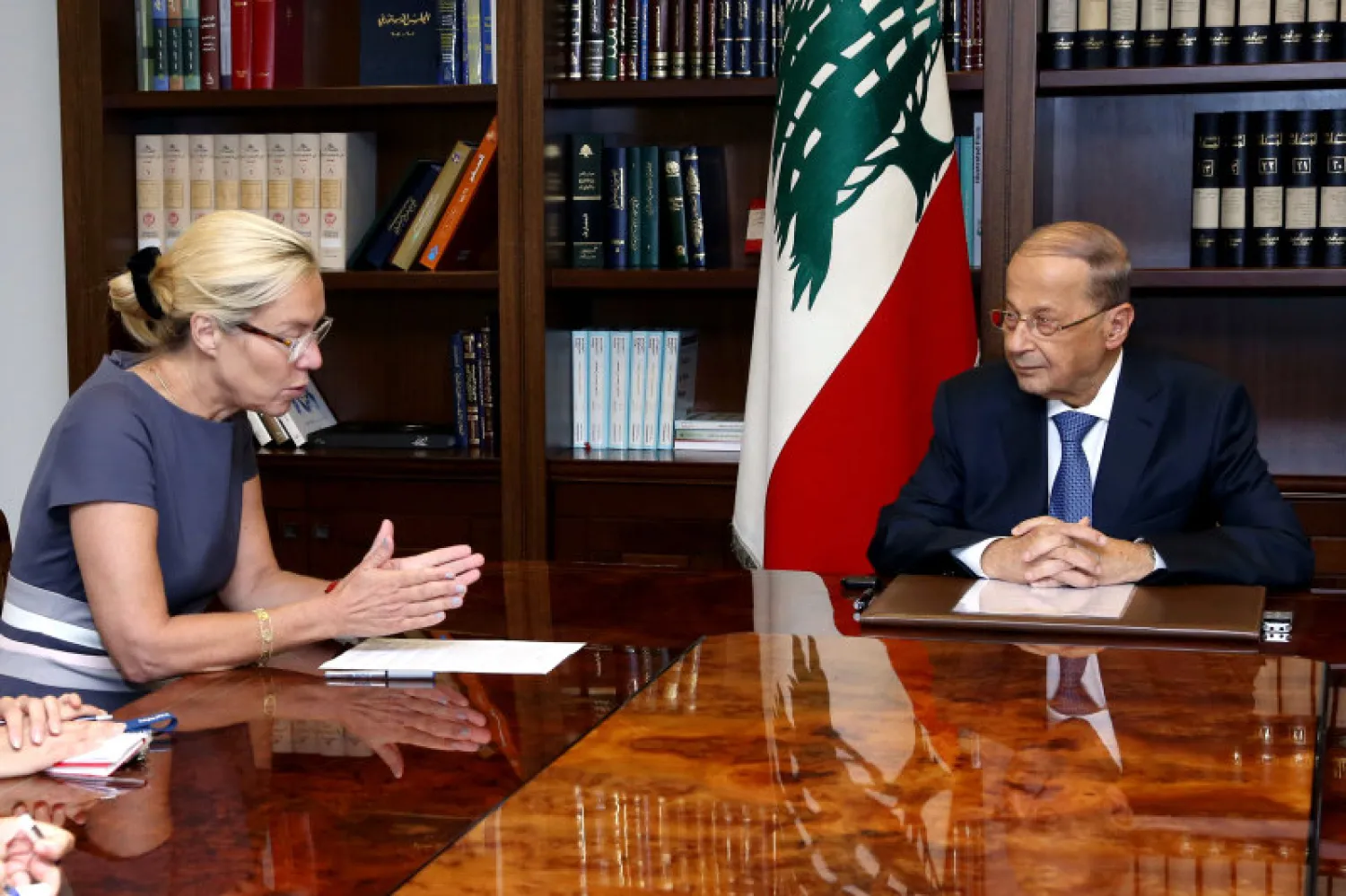Lebanese President Michel Aoun on Friday welcomed the renewal of the mandate of the UN peacekeeping force in the country and said he was satisfied with the international community’s favorite response to Lebanon’s demands on allowing UNIFIL to function in line with the standards it was established on.
Last month, the Security Council extended the mandate of the peacekeeping force, which now has 10,500 troops on the ground monitoring a 2006 ceasefire following Israel's summer war with Hezbollah.
Aoun made the remarks in talks with United Nations Special Coordinator for Lebanon Sigrid Kaag at Baabda Palace.
The meeting took place prior to Aoun’s participation at the United Nations General Assembly in New York and his meeting with UN Secretary-General Antonio Guterres.
Aoun and Kaag discussed the implementation of UN resolutions, particularly resolutions 1701 and 2373. The Special Coordinator reiterated the international community’s commitment to safeguarding Lebanon’s security, sovereignty and territorial integrity.
The Lebanese president sent his regards to Guterres, saying the meeting in New York will be an opportunity to discuss issues of common interest “mainly Lebanon’s request to become an international center for the dialogue of civilizations and religions, and the importance of cooperation with international organizations that provide assistance to Syrian refugees.”
Aoun’s scheduled meeting with the UN chief would be their second encounter after they had held talks on the sidelines of the Arab League summit in Jordan last March.
The Lebanese president also discussed with Kaag repeated Israeli violations of Lebanese sovereignty amid a complaint that Lebanon has recently filed with the Security Council.
Aoun also met Friday with EU Ambassador Christina Lassen.









